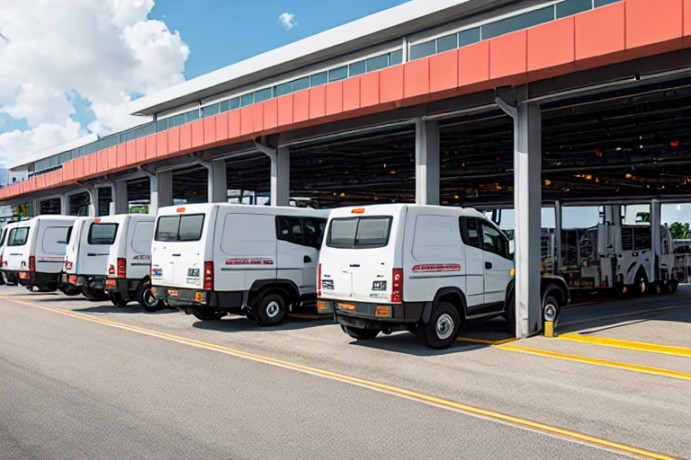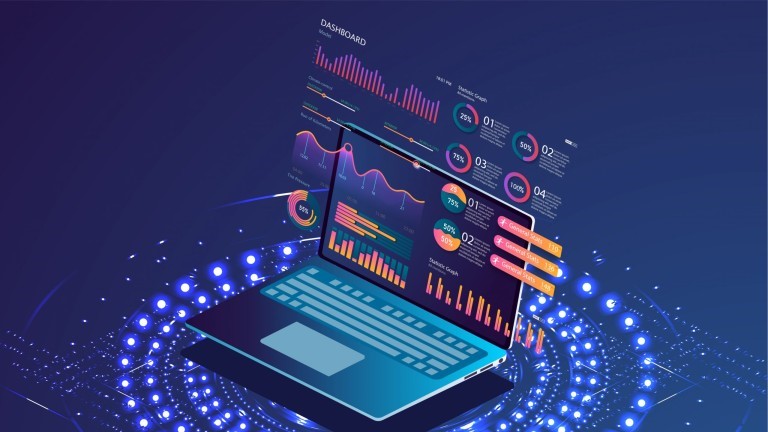Fleet management is becoming more and more important to stay competitive in the world. Whether it’s a logistics company, a delivery service, or a transportation company, the speed of a fleet has a big effect on how well the business does. Real-time data is a key part of modern fleet management. It changes how companies work and lets them make quick, well-informed choices. This blog goes into detail about how important real-time data is for fleet management and how it helps businesses.

1. Improved Fleet Visibility
In fleet management, one of the main perks of real-time data is that it gives more visibility. Fleet managers can now get real-time access to a lot of information about their cars. Details like where they are, how much gas they have, how fast they are going, and what maintenance they need. This makes it easy for fleet managers to keep an eye on their assets and spot problems as they come up. With real-time data, they can also plan routes better, make sure deliveries happen on time, and act to emergencies.
2. Enhanced Safety and Compliance
Fleets can handle safety better with the help of real-time data. Fleet managers can keep an eye on how drivers act and catch dangerous habits like speeding or hard stopping in real time. This information lets people do things ahead of time to prevent accident. Real-time data can also keep track of a driver’s hours of work, making sure they stay within the law. This reduces the risk of accidents caused by driver fatigue.
3. Optimal Asset Utilization
With real-time data, fleet managers can maximize the use of assets and improve fleet efficiency. They can look at how drivers use vehicles and find ways to make them more efficient. Fleet managers can make choices based on data about fleet size and maintenance schedules. By knowing how often they use vehicles and how often they are available. This leads to lower operational costs and a higher return on investment (ROI).

4. Predictive Maintenance
Taking care of a fleet can be expensive, especially if cars break down out of the blue. With the help of onboard sensors and real-time data, you can check the health of a car. Fleet managers get notified when a car needs to service or when a possible problem arise. By being quick, companies can cut down on downtime and make their assets last longer.
5. Cost Savings
Real-time data helps a fleet figure out where it isn’t working well and where it can save money. Fleet managers can take steps to lower fuel costs. By looking at how drivers behave, and how efficient routes are. Also, businesses can use real-time data to cut down on idle time, schedule and make routes fuel efficient.
6. Environmental Impact
Businesses are becoming more and more dedicated to reducing their carbon footprint. Fleet managers can keep an eye on fuel use and pollution in real time with real-time info. By improving routes and encouraging drivers, companies can help protect the earth and save money on fuel at the same time.

Real-time data has changed the way we do fleet management. It gave companies a huge advantage in a very competitive market. Real-time data gives fleet managers the information they need to make smart choices. Thus, it improves their efficiency and profitability. For example, they can see more of their fleet, make it safer, save money, and reduce their impact on the environment. As technology keeps changing, the importance of real-time data in fleet management will only grow. Businesses that follow this trend will be better able to thrive in the ever-changing world of fleet operations.
Comments
-
[…] are the days of relying on gut feelings and guesswork. Fleet management software uses the power of data analytics to provide insights. It identifies patterns in maintenance requirements. This helps fleet managers […]
-
[…] GPS tracking in fleet management software lets you see the real-time location of each vehicle. This feature lets fleet managers make quick choices, reroute vehicles as needed, […]
-
[…] Data: With preventive maintenance, you can capture and access real-time data. This makes it easier to identify trends and areas that need […]
-
[…] Telematics: Modern technology can help track the health of the vehicles in real-time. It allows us to take preventive action when […]
-
[…] lets us keep an eye on and track the vehicles in real time. In enables fleet owners to decide how to allocate resources better and meet customer […]
-
[…] of Real-time Data: Fleet managers needed access to real-time data on vehicle location. They were unaware of the vehicle’s condition and the driver’s behavior in real-time. […]
-
[…] Fleet management used to be about vehicles and routes. But now, it’s getting smarter and more connected. It is the result of implementing the Internet of Things (IoT). It lets devices talk to each other over the internet. This results in fleet activities getting better than ever. You can think of it as giving every vehicle a brain that lets it send, receive, and process information in real time. […]
-
I apologise, but, in my opinion, you commit an error. I can defend the position. Write to me in PM, we will communicate.
-
[…] Making decisions in real time is very important in dynamic fleet management. AI lets telematics systems process huge amounts of data. This gives fleet managers insights they can use for improving the fleets. For instance, if a vehicle runs into unexpected road closures, the AI can suggest alternate paths in real time. This helps keeps deliveries on time and avoids delays. […]






Leave a Reply